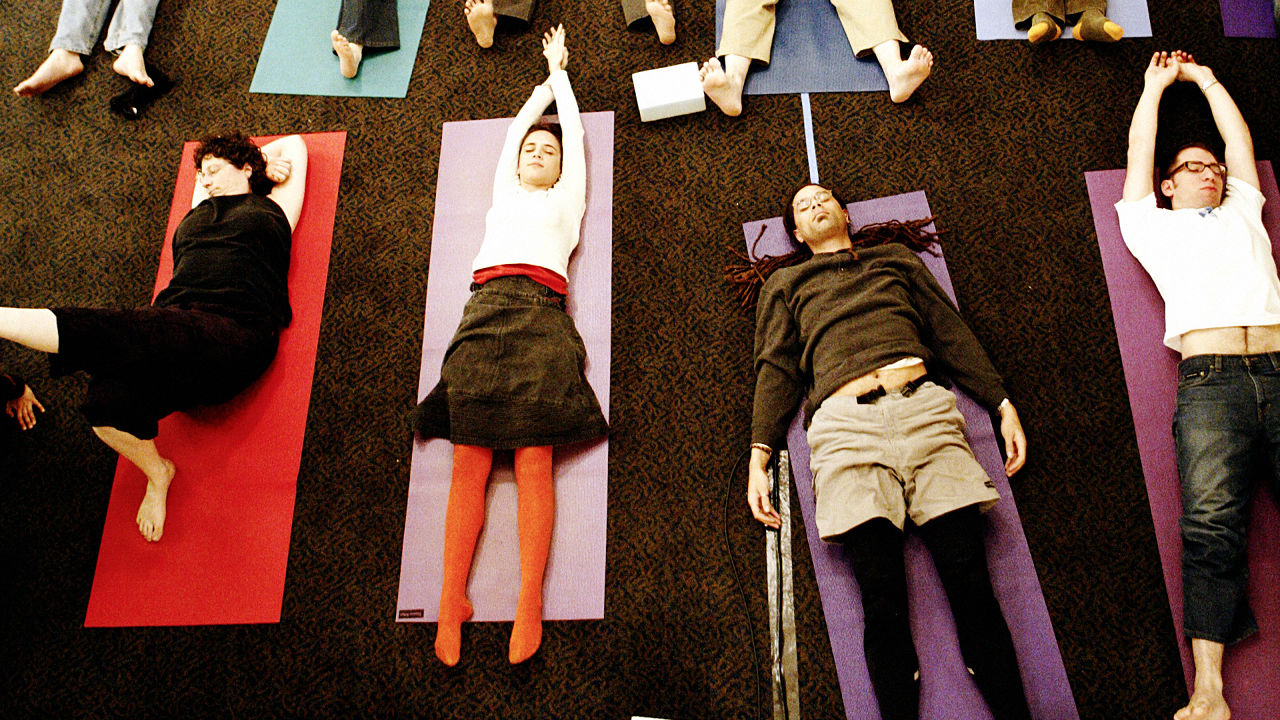Question: Are you conscious of your breathing right now?
Before answering this seemingly “no, duh” entreaty, you should consider what Jennifer Gregoire, chief strategic communications and marketing officer for Orbis and certified yoga instructor, has to say on the subject.
Gregoire has been practicing yoga for more than 20 years and has found infusing some of its basic principles in the workplace has led to a much calmer environment. But you don’t have to become a yoga master to achieve the same results. Here are Gregoire’s five yoga principles you can use to find your center.
Try Not to Sweat the Small Stuff
“Yoga teaches you to recognize that you’re on a journey and that you are taking steps toward where you want to go. That a real critical part of anything you do in the workplace, recognizing that you’re taking those baby steps to get to where you’re going. Parallel to that, it really helps you keep perspective to the here and the now by recognizing the day-to-day things that are frustrating at work are really minute details in the big picture of the world.”
You Can’t Find Your Center If You Think You Are the Center
“Yoga teaches you that it’s not about you. It’s really about being a facilitator of what’s going on and allowing those things to develop and evolve. Whether it’s a one-on-one dynamic–it’s not all about you. Whether it’s about leading a project–it’s not all about you. That’s a critical thing that comes into play when you’re teaching people yoga but very much applies to the workplace.”
Have a Flexible Mindset
“You have to understand that people work or learn in many different ways–everybody has their own style. It’s important to spend the time thinking about how people work: how they’re motivated, how they respond to feedback, how they tackle projects. That is a point that pulls very much from yoga–being able to flex your style and being able to think about how you can engage and work with others on the levels they work best.”
Keep Your Values (and Yourself) In Mind
“I have always chosen opportunities in my career that are very aligned with my value system–that is very much a yoga principle. That has really shaped the opportunities I’ve taken and when I’ve decided to leave certain organizations, being true to my values and making sure those values aligned with the workplace.
“Another thing you can do is stop and think about the behaviors, actions, and relationships that are in your life as a point of growth. Particularly in the world we’re in today, people are connected 24/7 and we don’t do as much self-reflection or self-study. That’s an incredibly important yoga philosophy that can help in life, but particularly in your career. to help you take your profession in whichever way you want to.”
Don’t Forget to Breathe!
“It’s a struggle for everyone today to find those moments when you can take a breather, but it’s one very important principle: taking that moment to reconnect with your breath.
“I find the easiest way to connect with your breath is by lying down. When you’re lying down it brings you more inward. You’re typically not lying down in the workplace so it takes you inward a little bit. It’s helpful to put one hand over your chest and one hand over your abdomen and then you can feel the breath going through those spaces. It can take a few minutes to really connect with that and get into the rhythm of your breathing. but that’s a nice way to get people to transition from being in a rapid work type of mode to being more inwardly focused.
“Another breathing technique that is very common is the alternate nostril breathing, which is called Nadi Shodhan Pranayama in Sanskrit. It’s the basis for a lot of mediation that’s based on the concept that one of your nasal passages is dominant. When you do this alternate nostril breathing, you’re closing off one nostril causing your brain to reset because it’s pulling it out of that dominant state. There’s a lot of scientific research that shows how this helps to trigger the relaxation response.”
From: Fast Company

